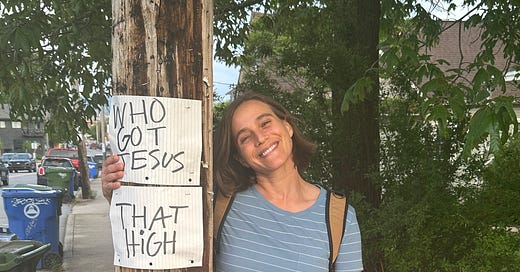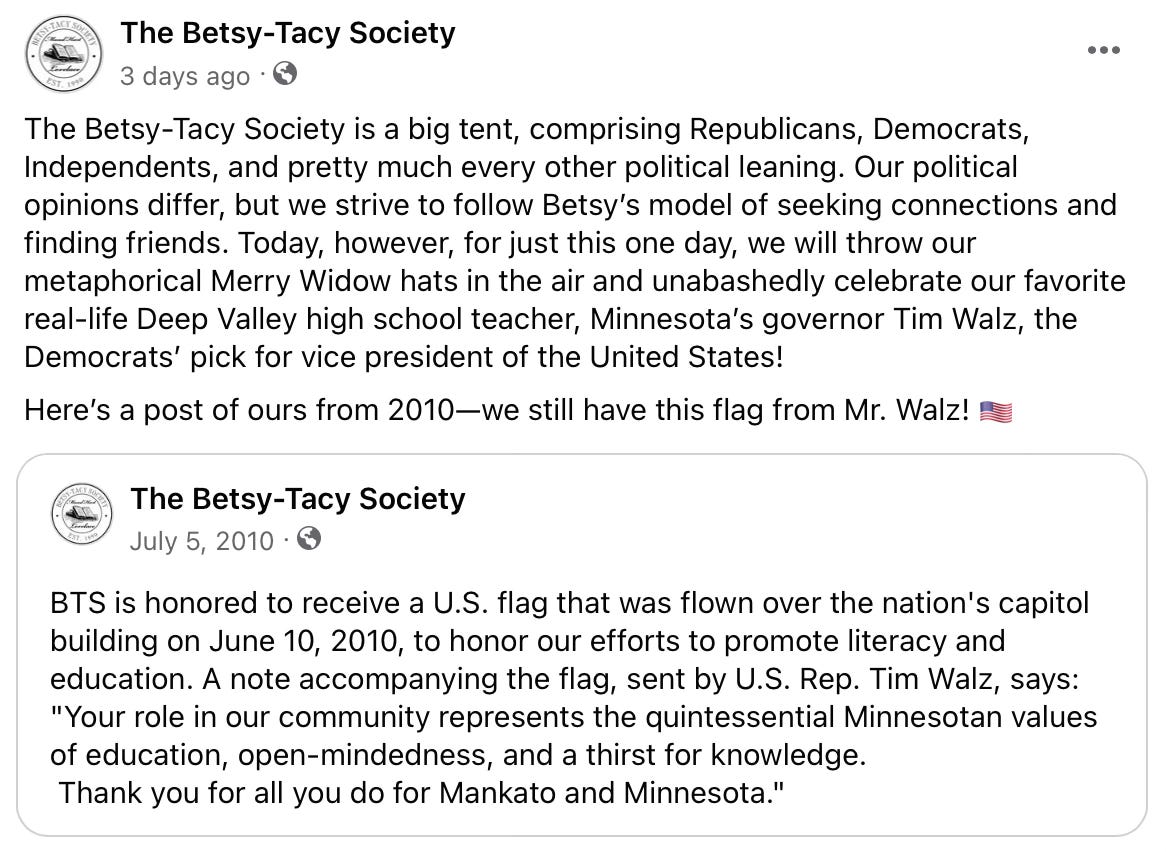Today Jessica called me from Massachusetts. She’d been on a long bike ride when her handlebars broke and she nearly crashed. While walking the next couple of miles to a repair shop, she decided to check in on me. I’d been blue over the weekend and avoiding calls.
This time I picked up. Jessica is a Jewish poet and the founder of Yetzirah, the first literary organization in the United States for Jewish poets, so I knew she’d be horrified and entertained by the story I’d just heard of a long-dead parishioner who had once hosted a seder at church. The woman had served hot dogs, and she’d refused help from a local Jewish friend, saying she didn’t want the seder to be “too Jewish.” When guests arrived, they found a table set up with personal photos of her trips to the Holy Land.
“Are you trying to rage-fuel my walk to the bike shop?” Jessica asked.
“Yes!” I said. “Is it working?”
I met Jessica Jacobs a few years ago, when she was the visiting poet and I was the chaplain in residence for a writing workshop in Seattle. We shared dinner and argued about, among other things, the merits of a recent midrashic novel by a Jewish author (which I had just reviewed for The Century—see the review of Sarah Blake’s Naamah in the May 22, 2019, issue). When I moved to Asheville, North Carolina, in 2022, I knew she lived here, but I was nervous about getting in touch, as our connection had been brief.
Then one hot September day, on the banks of the French Broad River, I heard someone calling my name. I turned but did not recognize the woman in a baseball cap and shorts as the elegant poet I’d met on the other side of the country. Disoriented, at first I assumed she was a parishioner: in the previous two months, since starting my new role as associate rector at Trinity Episcopal Church, I’d met hundreds of people whose faces I couldn’t yet place. But she quickly identified herself, to my delight, and proceeded to show my kids how to inflate a kayak.
I like to tell the story that way—hearing my name called by the river and not recognizing the voice. I like the way it puts us in a long tradition: Samuel in the night, Jacob fording the Jabbok, Miriam and a princess by the Nile. We’re people who hear voices; we’re people who find God by the water; we’re people who tell such stories.
That’s what we started doing, anyway…
(Read the whole piece at The Christian Century.)
Three Things:
Whatever you think about Tim Walz, it’s important to me that you know that he and his wife were high school teachers in Mankato, MN, which is real life Deep Valley — the setting of my favorite children’s book series, the Betsy-Tacy books. (I visited Mankato in 1998 or so for a meeting of the Betsy-Tacy Society; here is their statement on Walz1. I’ve written about Betsy twice: about how she moved me towards the Episcopal church, and, long ago, about Betsy and Syrian immigration.)
…we had worn our bare feet
bare since the twentieth
of June and there were times
we forgot to wind up your
alarm clock and some nights
we took our gin warm and neat
from old jelly glasses while
the sun blew out of sight
like a red picture hat and…
-I Remember by Anne SextonKatelyn Beaty on JD Vance and the Politicization of Having Kids
and bonus: the nostalgia of this playlist, You’re a Single Mom in the 90s Cleaning Her House
xo







A beautiful essay, Amy.
Thank you for such a lovely and heartening piece of writing!